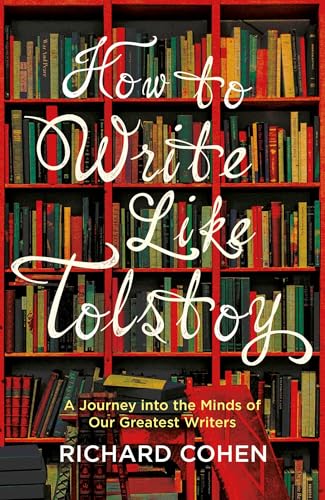
How to Write Like Tolstoy: A Journey into the Minds of Our Greatest Writers

None of the three endings—nor that of Middlemarch, quoted earlier—provides prizes, pensions, or cheerful remarks, and with each one might interject, “But what happens next?” Perhaps Catherine and Heathcliff will roam the heath as ghosts evermore. Yet there is a note of resolution, of a journey completed that leaves us saddened, perhaps, but
... See moreRichard Cohen • How to Write Like Tolstoy: A Journey into the Minds of Our Greatest Writers
overwriting (to my ear, at least).
Richard Cohen • How to Write Like Tolstoy: A Journey into the Minds of Our Greatest Writers
Maybe Hemingway should have taken Fitzgerald’s advice, or settled for one of his own earlier versions. But his choice underlines a general temptation: to seek out some grand statement or Humpty-Dumptyish knock-down argument or sentences intended to wrench your heart, and the result is
Richard Cohen • How to Write Like Tolstoy: A Journey into the Minds of Our Greatest Writers
Begin afresh, afresh, afresh. “Revision” is most powerfully and precisely a fresh vision, a new way of seeing what you have done and what you intend: re-vision.
Richard Cohen • How to Write Like Tolstoy: A Journey into the Minds of Our Greatest Writers
essays Ten Years in the Tub: A Decade Soaking in Great Books
Richard Cohen • How to Write Like Tolstoy: A Journey into the Minds of Our Greatest Writers
Batuman declared: I would greatly prefer to think of literature as a profession, an art, a science, or pretty much anything else, rather than a craft. What did craft ever try to say about the world, the human condition, or the search for meaning? All it had were its negative dictates: “Show, don’t tell”; “Murder your darlings”; “Omit needless
... See moreRichard Cohen • How to Write Like Tolstoy: A Journey into the Minds of Our Greatest Writers
(a) Trust a few, necessary voices; (b) Try, as much as possible, to avoid torturing these brave souls with your insecurities; and (c) Shut up and write.
Richard Cohen • How to Write Like Tolstoy: A Journey into the Minds of Our Greatest Writers
Edgar Allan Poe, “The Philosophy of Composition” and “The Poetic Principle,” both of which advocate short chapters, such that a reader can complete one chapter (or structural unit) in